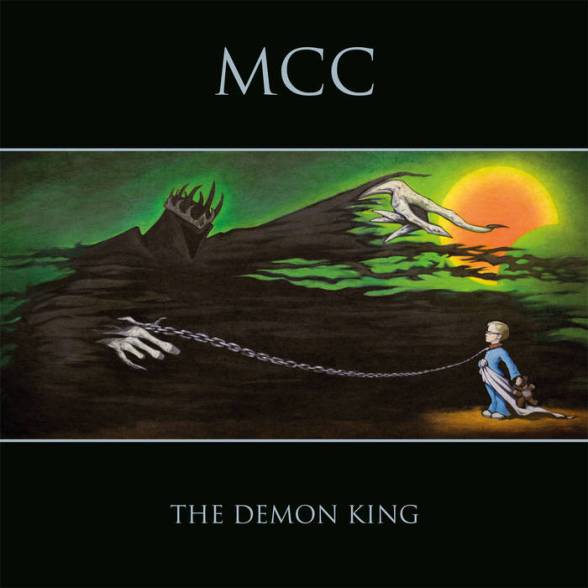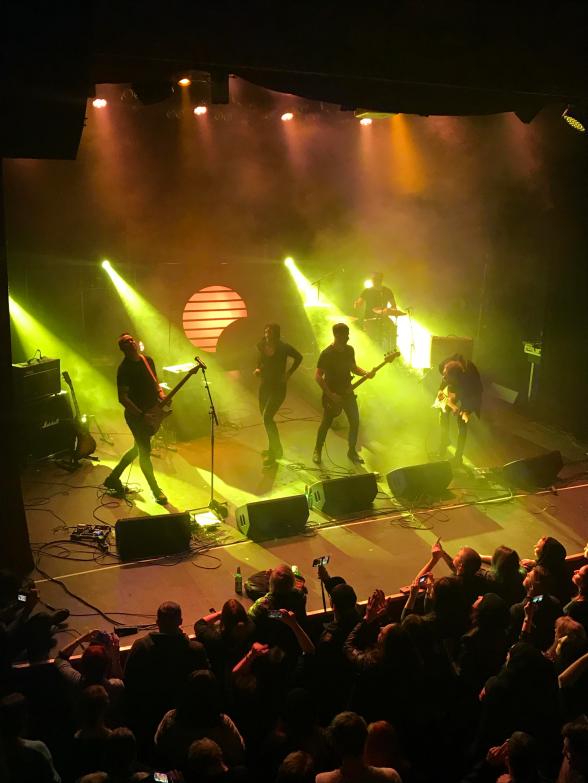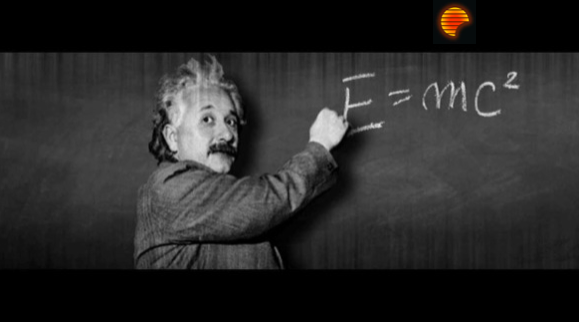
Martin Persner kindly agreed to an interview for this article, which follows as Part II of a two part series on MCC.
ASF: What is the musical background and training of the members?
MP: Most of us are self-taught but we were brought up in more or less musical homes. Me and Arvid (my kid brother) for instance, were brought up with a dad that was a music teacher that later went on to work in a record store. He is a Beatles-freak and loves his pop music and is very knowledgeable about pop music history. Our mum was also heavily into music and listened more to Genesis and other pop music from the 60’s and onward. Mom would listen to Tears For Fears, An Emotional Fish, or blast the Swedish group Atomic Swing loud on the stereo, or stand in the kitchen and cry nervous-breakdown-tears along the soothing tones of Edvard Grieg.* I think it actually she who inspired us the most: she loves everything about films and music and she always shared stories about pop stars and their lives with us. That in itself gave us an interest for music and films regardless of the genre – it all seemed too important to us, we felt that ”this is what life is about.” In that sense, the world of music and film became a magical yet reachable thing, not limited to just a song on the radio. My stepdad is also the owner of a record store. He listened to Punk, New Wave and what branched out of that. Our parents would take us to those concerts as well. So, as for me and my brother, our musical background is that we have listened to so much different music that it is hard to pin down what our musical background is. It’s like a kaleidoscope.
[*ASF: Ghost’s “Zombie Queen” is taken directly from “Ase’s Death” from Grieg’s “Peer Gynt Suite”]
Arvid, our drummer and also guitarist, started playing with me when he was about 16. He came into our gang of friends with an even more eclectic taste in music – was never a big metal fan, although he liked a few tunes here and there.
As for Pär, our bass and guitar player, he was trained in classical guitar from a young age. He spent time with this other fantastic classical guitar player, and they had a band that was very different from anything I had heard: two classical guitarists that made concept album music for two guitars, proggy as hell but different in the sense that it was all acoustic. One thing that inspired them was Italian prog music, which Pär really turned us on to. We loved what we heard – it had so much to it that regular British or American prog didn’t – it had a much dreamier sound. We took inspiration from that, and still do. I remember it was a home-made compilation CD called just ”Prog Italiano.” That was the gateway into that.
I started to play in a band at the age of 10, and all we did was to cover Metallica or Guns ‘n Roses songs. They were our idols back then and shaped all of us a lot musically. I then started to play in a hardcore band at the age of 20, and I brought with me thrash-metal riffs and ideas that I had written on my over a long period of time, many of them influence by trance-music, but here, all on guitar: hectic, monotonous and everything in minor scale. It was a clash between the two styles, and the band started to sound really different and unique.
Later on we disbanded and formed “Tid,” which is the sister-band to MCC. Tid plays a darker sounding music in comparison and has little or few boundaries when it comes to ideas and what we ”are.” A set sound for sure, but not a set idea for what the content must be. At the same time as we started Tid and recorded demos for that band, me and my friend Simon (also in that before mentioned hardcore band) started to record demos of other music we came up with. We had no idea what this was for, it just came out of us. Our friend Pär came along and brought in his style of guitar playing and his musical thinking. A friend of ours called Tobias also joined in on the weekends he was visiting from Stockholm. My kid brother Arvid soon joined too. We became MCC.
We had a bunch of demos of strange songs and then we started to rehearse them as a live band. The songs then slowly emerged to band-songs rather than just guitar-only demos. One could say we dragged the songs into a somewhat normal setting, opposed to how they sounded as guitar-only demos. Basically, we tried to orchestrate the weird dreamy songs that had been recorded. I think that is what MCC is – a band’s take on something that won’t easily be restrained.
After having recorded an album all by ourselves between 2006-2009, one of us started his new project called ”Ghost”. And bang, off we were. MCC was put to sleep due to lack of time and energy. Now, some 7-8 years later, the situation is different.

ASF: Did any members study music at college, or in more formal ways?
MP: None of us did, except for Pär who went to the Swedish Communal Music School where he studied classical guitar. It obviously influenced him a lot: he came out of that well-versed in music theory and its terminology, which we’ve learned from him over the years.
ASF: Are there genres outside of rock that were important to the group? Jazz, classical, folk, world music, pop, etc? I hear influences outside of rock/pop—minimalism, even a little spaghetti western guitar, there’s a little Dire Straits guitar sound occasionally as well, but it’s never a derivative sound, it’s always unique and compelling.
MP: Yes, absolutely. As far as Jazz or World music goes, not directly. Of course, some of the music that influenced us was influenced by that music, so it’s there in the background. I do like folk music as well—Peter, Paul and Mary, Simon & Garfunkel, John Denver and others.
Pop music is an obvious source: as all of us listen to a lot of different music from a lot of different eras. Ambient music has had an impact on us – maybe not so much arrangement-wise, but sure enough when it comes to setting a mood. Arvid and I have two more brothers, and both of them listen a lot to music but none of them make music themselves. Both of them are into electronic music and I think that that is what has shaped MCC the most when it comes to melodies and sound: Everything from the cheerful over-the-top melodies of Italian KOTO to the mysterious depths of Vangelis, the alien pop-music of Jean Michelle Jarre and also a lot of Psytrance. The latter is interesting as it has such a monotonous feel to it and makes you just float in the music. One doesn’t really have to pay attention to a conventional song arrangement with verse/bridge/chorus. Thus the development of melodies can be very different. When we started writing music for MCC some 10 years ago a lot of the ideas was just me sitting at home have created this Psytrance-sounding melodic part that I didn’t know what to do with. We would record ”only guitar” demos en masse. They were layer upon layer with no thought about pop, rock or a ”band” playing the tunes. They were just my/our interpretation of what trance and electronic music had given us, but played on guitar only, and lots and lots of guitar layers. When we started to rehearse as a band we would take guitar parts and transpose them to synth or keyboard figures, or bass lines or simply drum rhythms. Some of them turned into vocal melodies.
Apart from what is mentioned above I think that except for rock and pop, which are the musical styles that we operate under, I would say that film soundtracks have had the most impact on us. It can be a pop or rock song or a symphonic piece – in a movie, set to the right scene it can do wonders and give both the movie as well as the song another dimension. A bland pop song can thus turn into a fantastic song once you’ve seen and heard it in that context. So, as wide and unfathomable as the term is, soundtracks are our biggest influence. In other words, music that helps paint a picture or enhance a scene.
And yes – I tend to bend my strings in the style of Knopfler, but what choice do I have; it just feels and sounds so good. The western guitars would be in the line of Ennio Morricone and anything down that way. Or maybe even the dust-riddled coolness of Lee Hazlewood or any old Surfrock. I don’t know. Give me a Stratocaster and a delay pedal or a reverb and I’m stuck. Mike Oldfield, Mark Knopfler, David Gilmour. I like their sound. I guess all of them hearken back to Hank Marvin.
ASF: Some of your music has voice and lyrics, some doesn’t. When there are lyrics, the subject matter is always quite abstract, and the voice is subdued, How do you approach this aspect? Are some tunes brought to the group with lyrics, or do some tunes just evolve that way? The vocals are perfect for the music—they complement each other so well.
MP: When we recorded our first and only full length album ”Goodmorning Restrained” between 2006-2009, we did it all by ourselves. That can surely be heard on the end result when it comes to the audio. None of us are proper singers—far from it actually. Nevertheless, we felt that some of the songs really needed vocals. Back then we never wrote songs with lyrics and vocals in mind, only an occasional line here or there. We simply couldn’t sing, and maybe still cannot. In any event, me and Simon laid down the tracks with our voices as they are, and tried to make it sound as good as we could. We did not wish to have the vocals upfront as it was meant to be more of a laid back thing, rather than a hysterical rock-vox that took away from what musical landscapes we had created. That being said: some of the songs, like ”Valiant Visions Dawn” was written with room for the vocals. It was a pop song, unlike some of the other songs which were intended to be instrumental that develop in their own time. The idea was never to treat the vocals like any other instrument, but very well as part of the music rather than the reason for the music. Lyrically it has always been about a floating feeling of something. I do have meaning behind my lyrics, but I’d rather express it with ”poems” rather than with pub-singalong lyrics.
As for our new EP, ”The Demon King,” all the songs with vocals were written that way. I filled in as a music teacher eight years ago and then I really had to try and sing with the kids. After that I started to be able to control my voice somewhat and from then on I have been writing songs with vocals in mind from the start. A more classic approach I guess. But we still use the old method too: write instrumental music and then have a look at it and see if it requires vocals.
The songs we are currently writing, the songs for our upcoming new full-length album, are mostly with vocals and have a more traditional feel to them, at least as far as the vocals go. But I hope that the music works to convey our ideas whether there are vocals or not. I am not the world’s greatest singer and we are not the world’s greatest band, but we have fun and we make the music we would like to hear ourselves. Right now we would like to write some songs that has vocals to them, so that is what we will do.
ASF: What else would you like to say about your music?
MP: We are very conventional in the sense that we use traditional instruments and for the most part arrange our songs in traditional ways: we are far from avant garde in any sense. We do not set out or try to re-invent anything. We do not see ourselves at post-rock or anything down that alley. We are just a band that believes that great music can still be made, regardless of the sonic rivers of shit that surrounds us and blasts at us from most directions. We believe that there has got to be a place for better music. And if there is not – let’s make way for it.
Important to remember is that we are not opposed to any other style of expression, be it that transparent bullshit by any typical street-rock band working their asses off to seem casual, saying ”we are not pretentious” (which they of course are, like everyone else), or be it the lonely girl with her guitar singing falsetto as much as she can in order not to look too serious, or be it a black metal band which lives and breathes to be “authentic.” None of these things are what we want to be or strive for, but the fact that they do exist is a good thing. They represent different worlds, different ideas, and different dreams. The existence of different musical styles is good and makes for more exciting things to emerge, and musical styles mix and new ideas are born. And having something that you really dislike also makes for you to be able to do something that is the opposite. Polarities. In order to know what you want to do it is sometimes good to know exactly what you do not want to be.
Obviously, there is more to experiencing music than purely just the music. So many things are attached to the music and are irrevocable parts of the experience. An artist or a band’s image, lyrics, where they are from, what they look like, what they say, what their cover arts looks like, how they are marketed, what instruments they choose to play – everything is just attachments and adds value to the music. So in that sense one can really dislike an artist but like their song, or, by all means – the other way around.
This is the second part of a two-part article. The first part is found here.
For information on MCC, visit their homepage and their Facebook site. MCC’s recently released EP entitled “The Demon King” is available online at Lovely Records and on Amazon. “Goodmorning Restrained” is also available at Lovely Records and on Amazon.
Photo from MCC concert in Nörrkoping by Megan Burns, used by permission.
Artwork used by permission of MCC.

 March 29, 2018
March 29, 2018 
Trackbacks/Pingbacks
[…] Martin Persner kindly agreed to an interview for this article, which follows in a separate post as Part II. […]